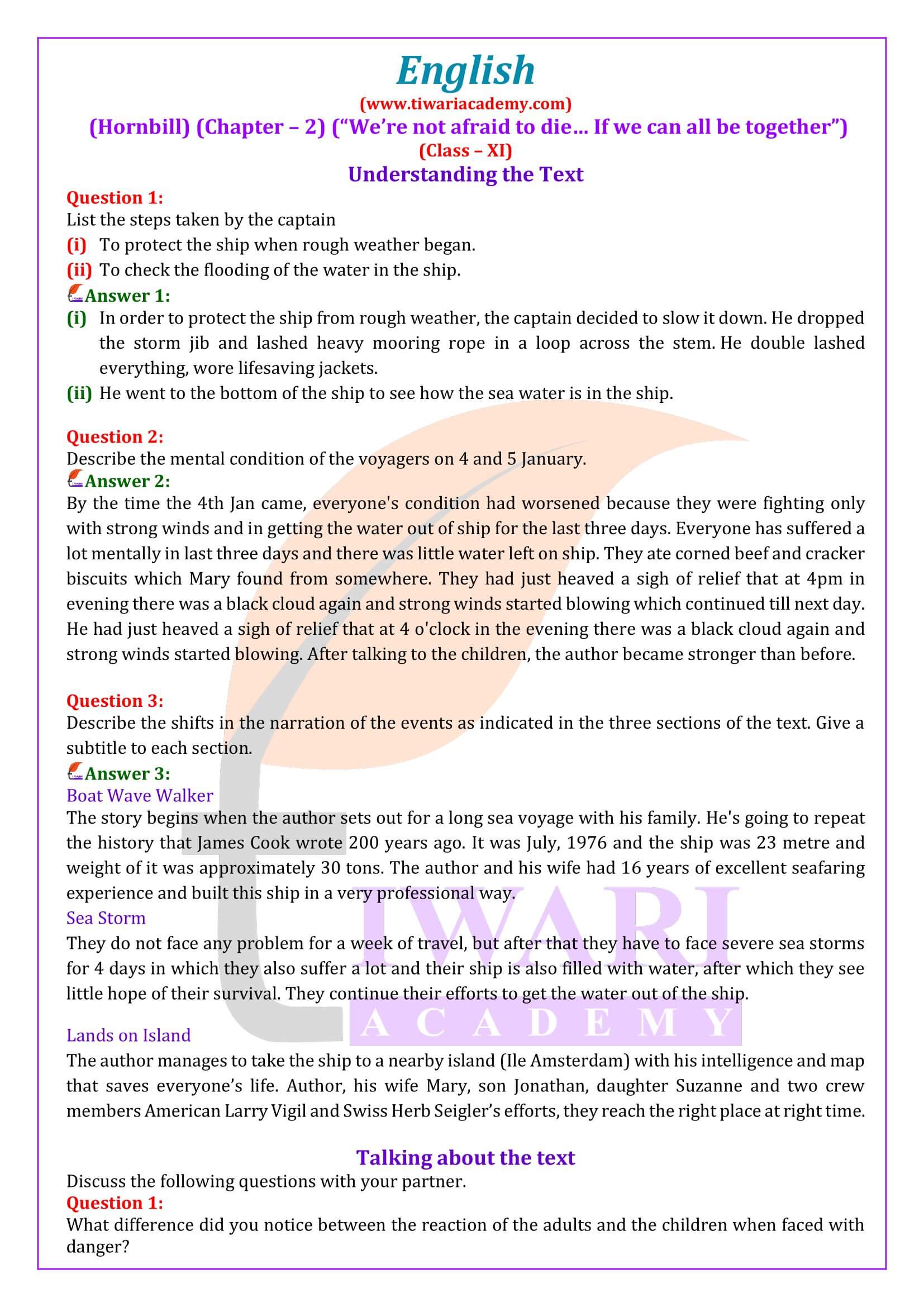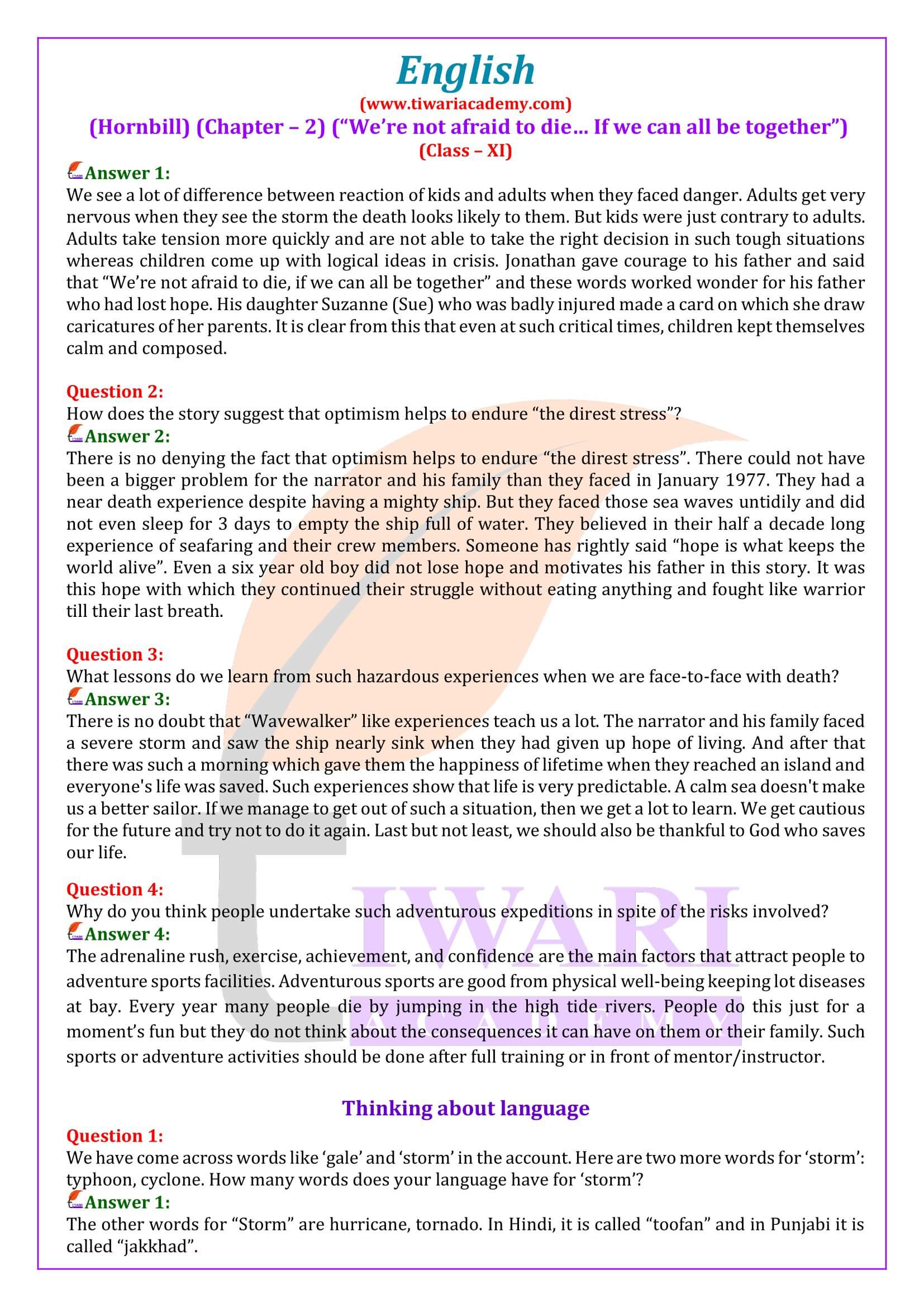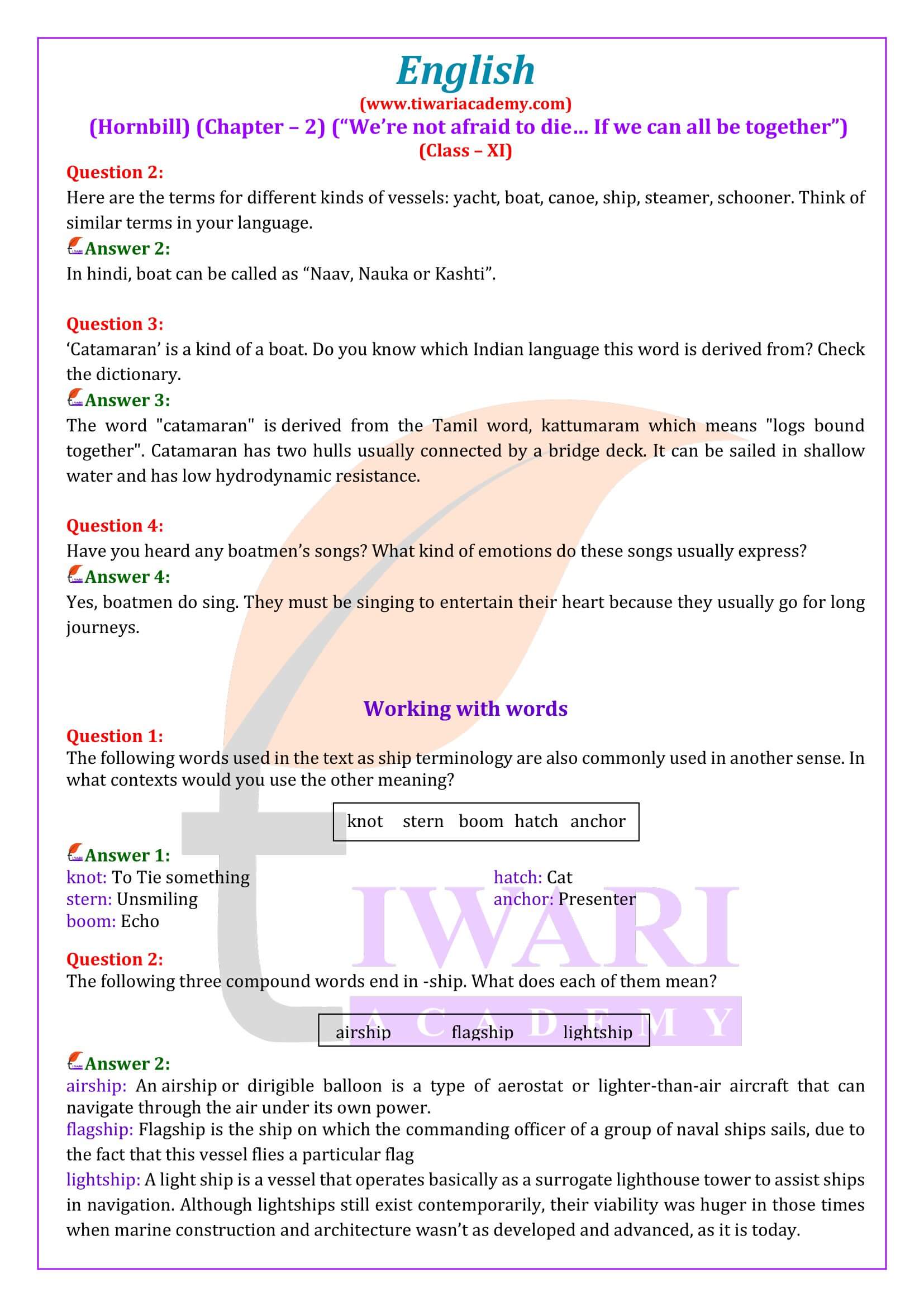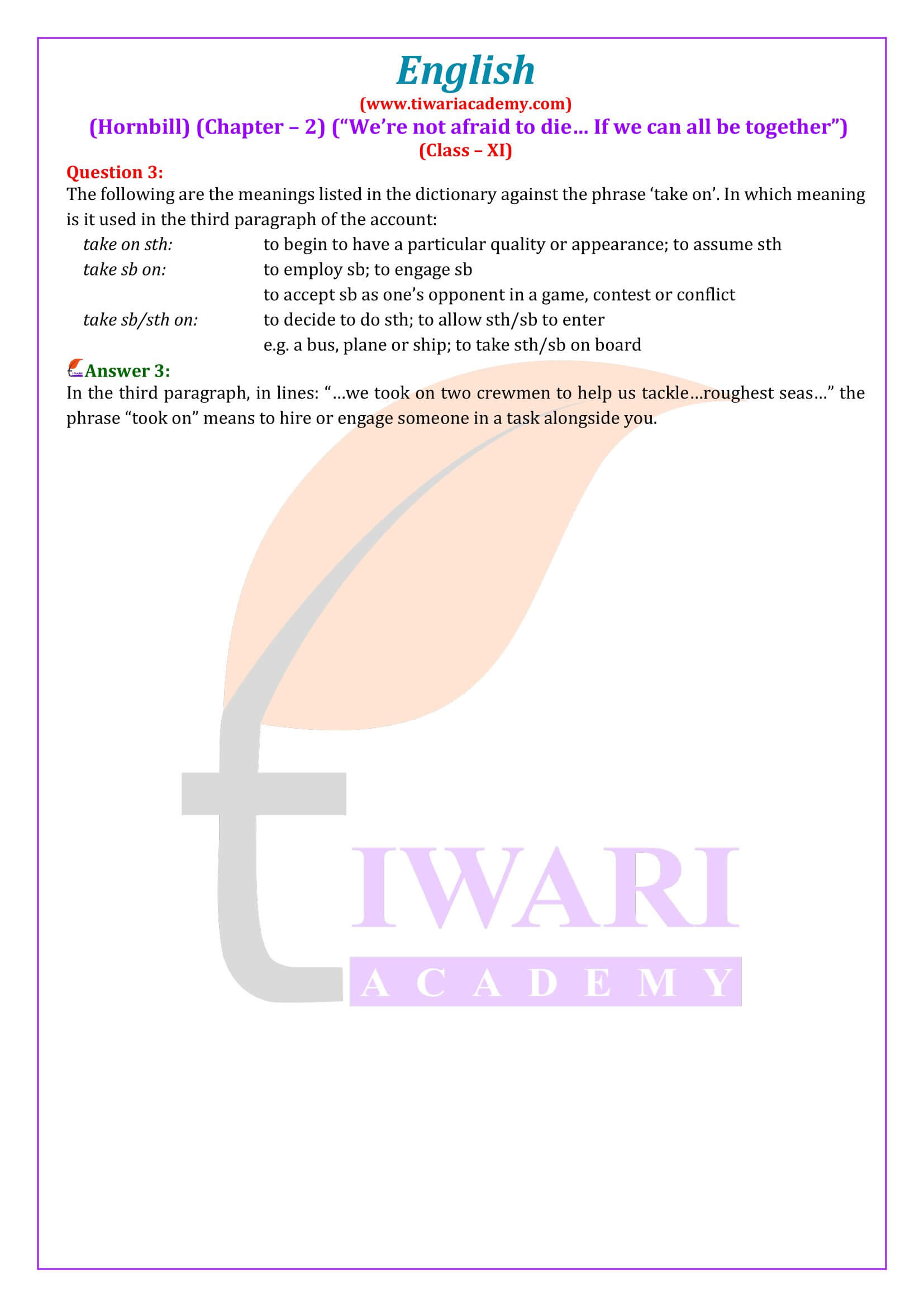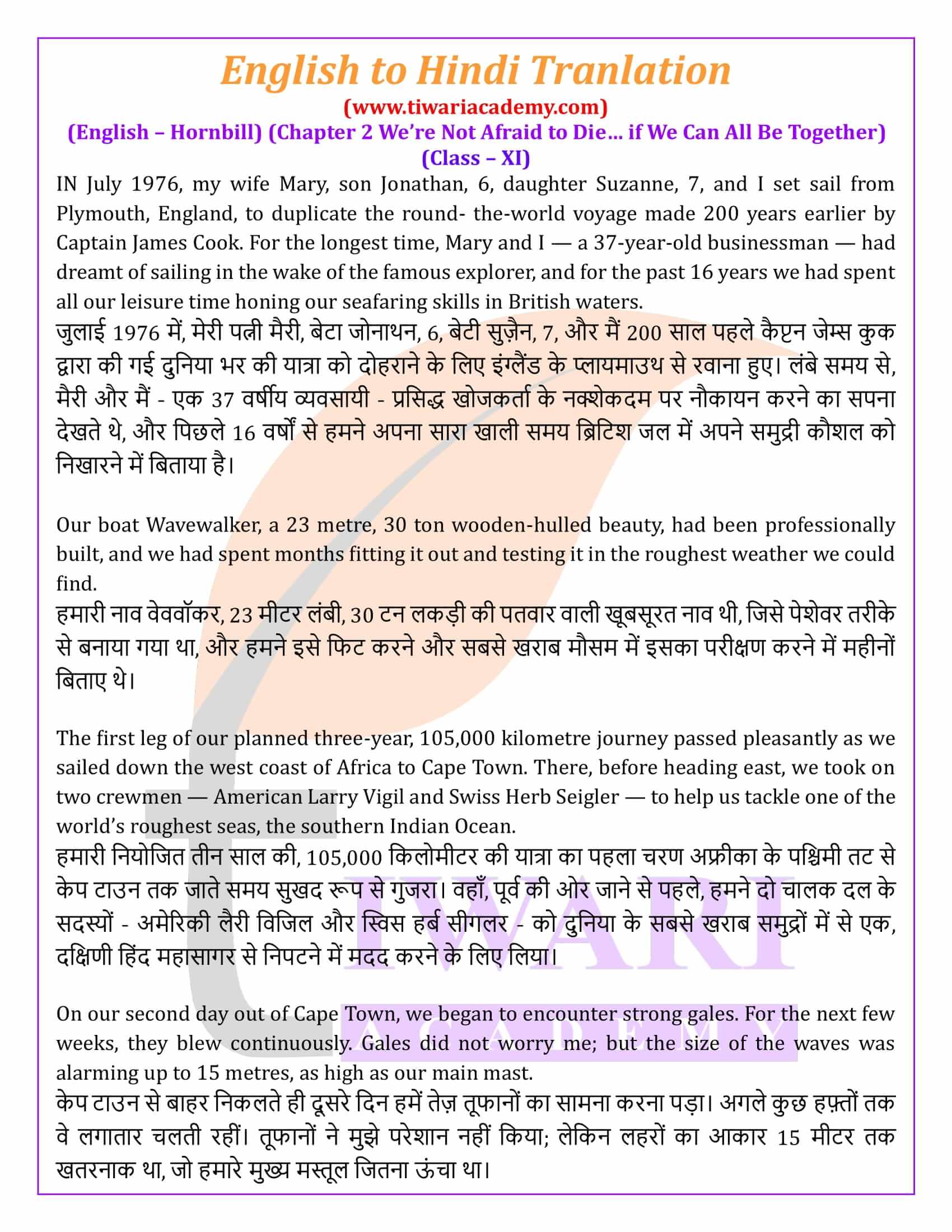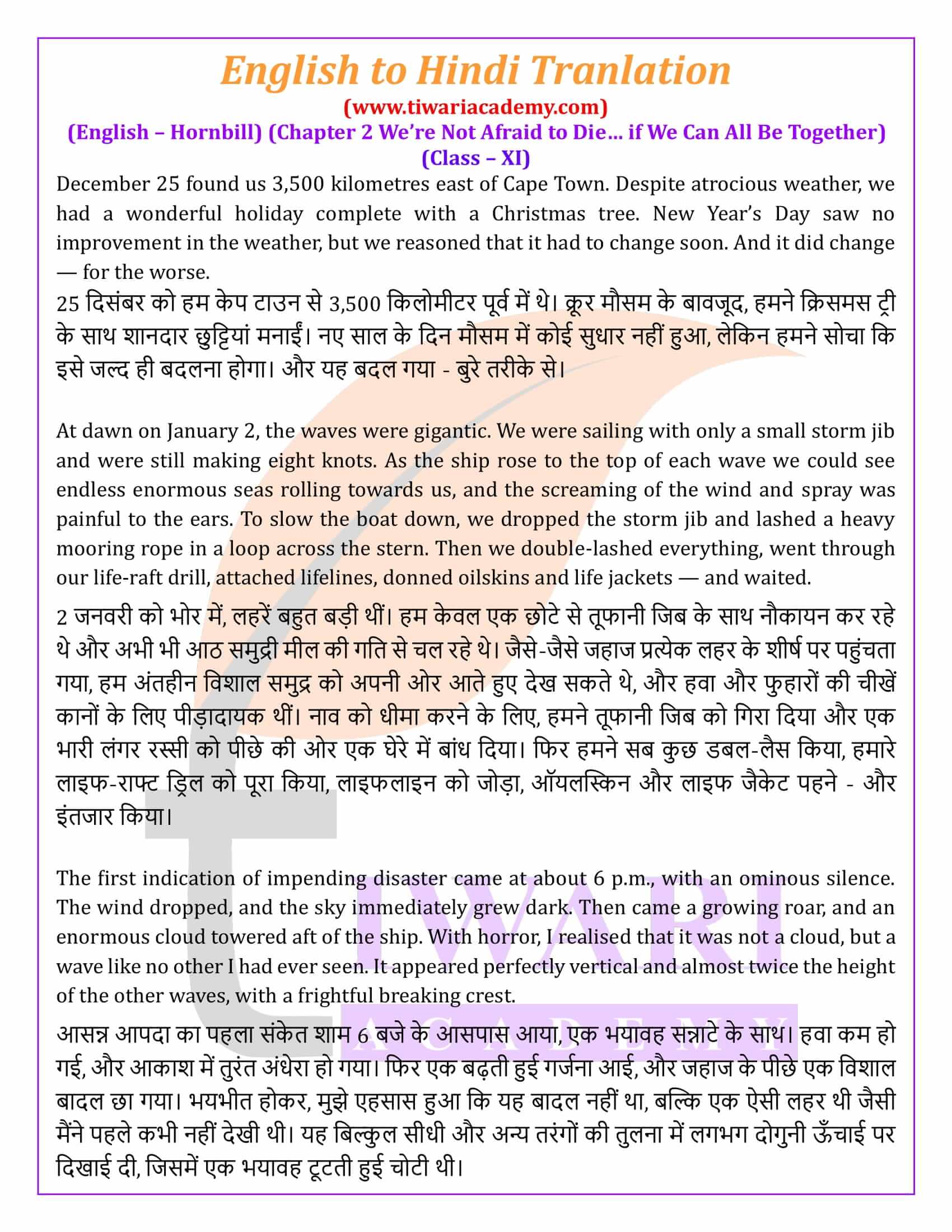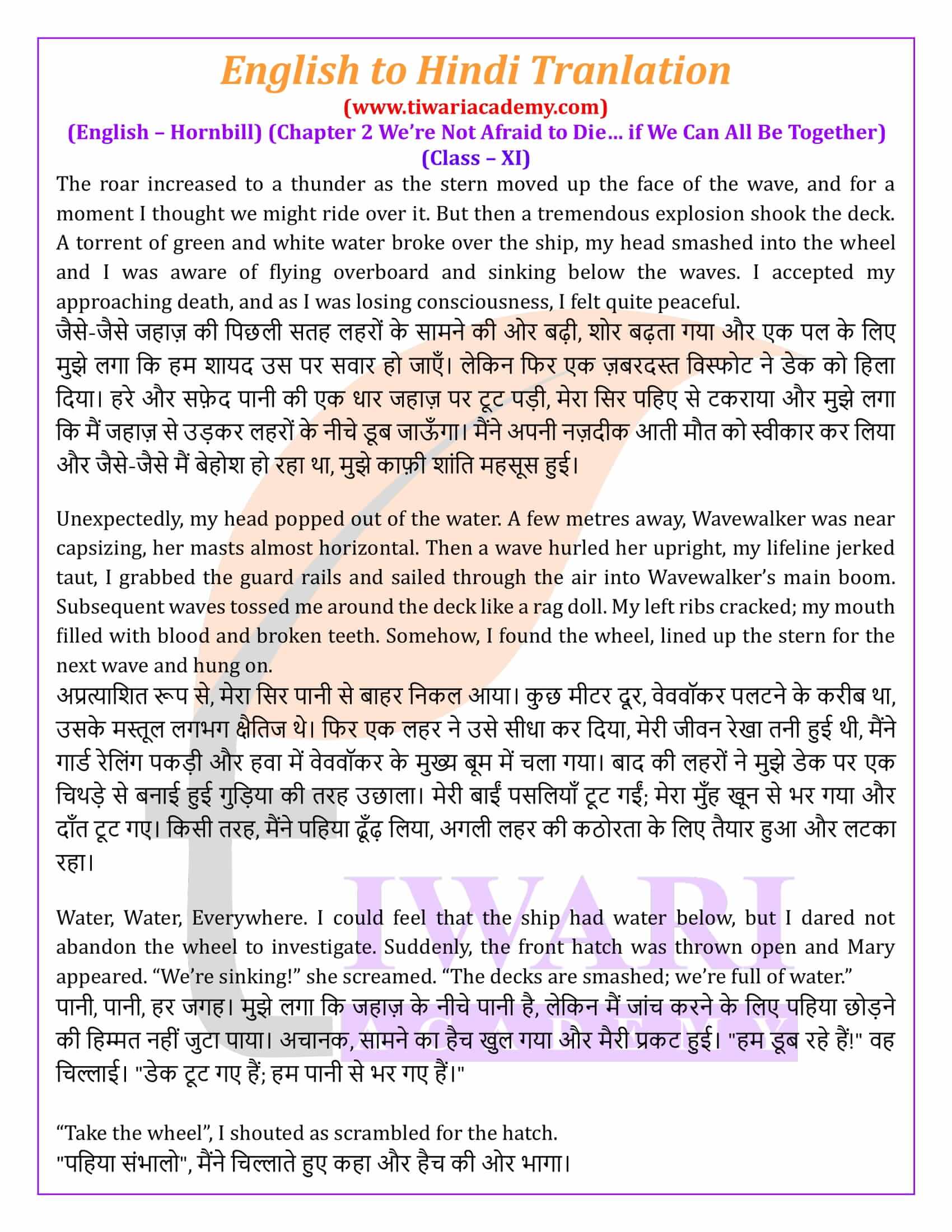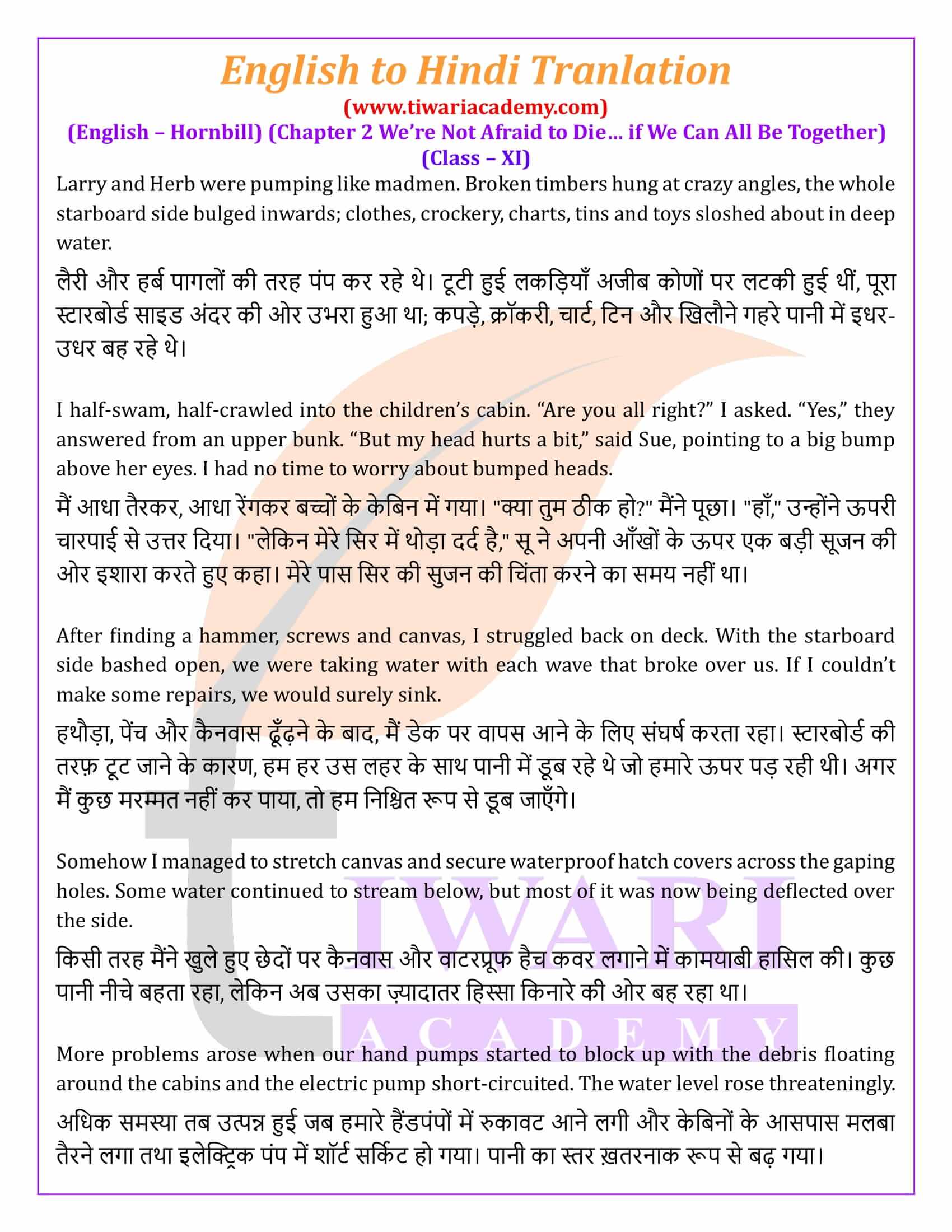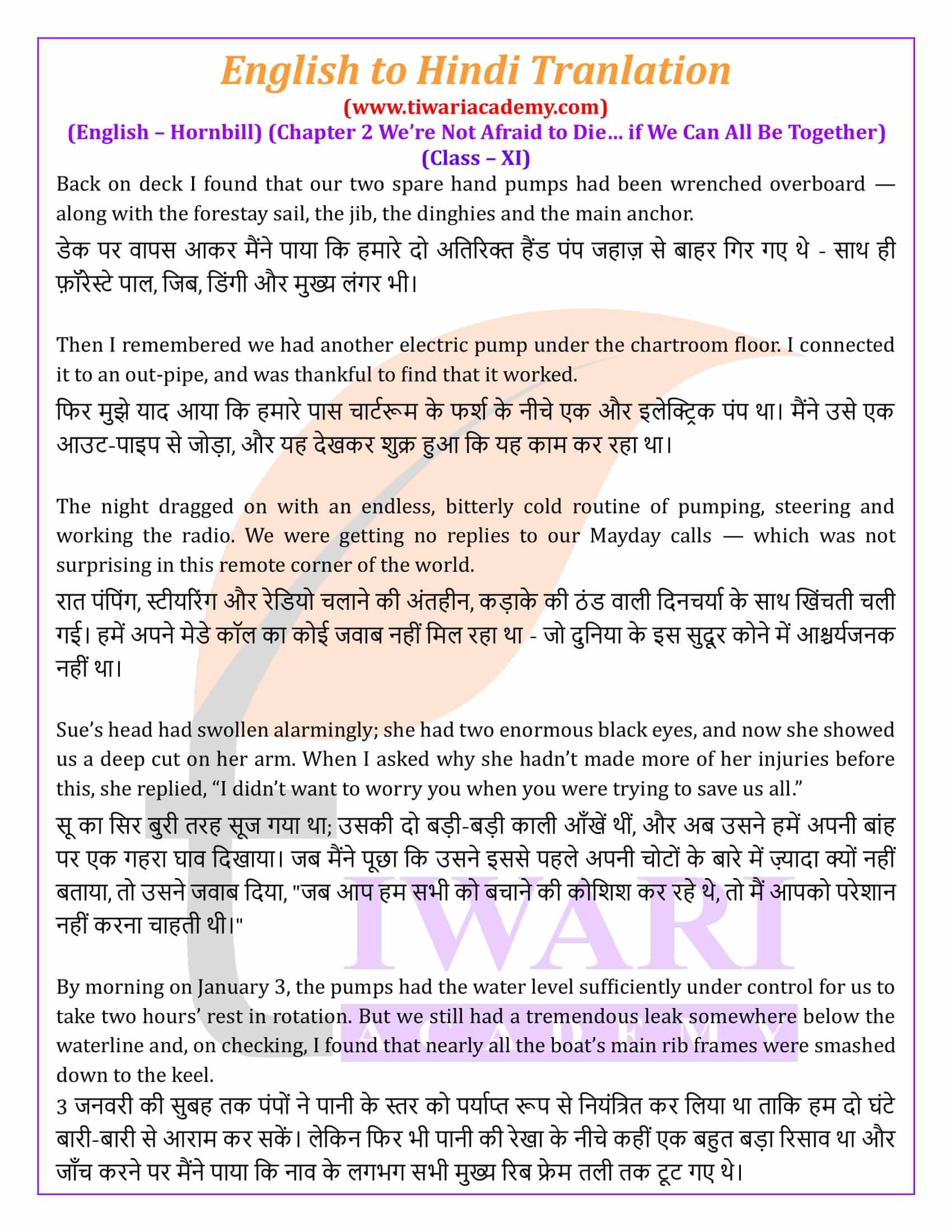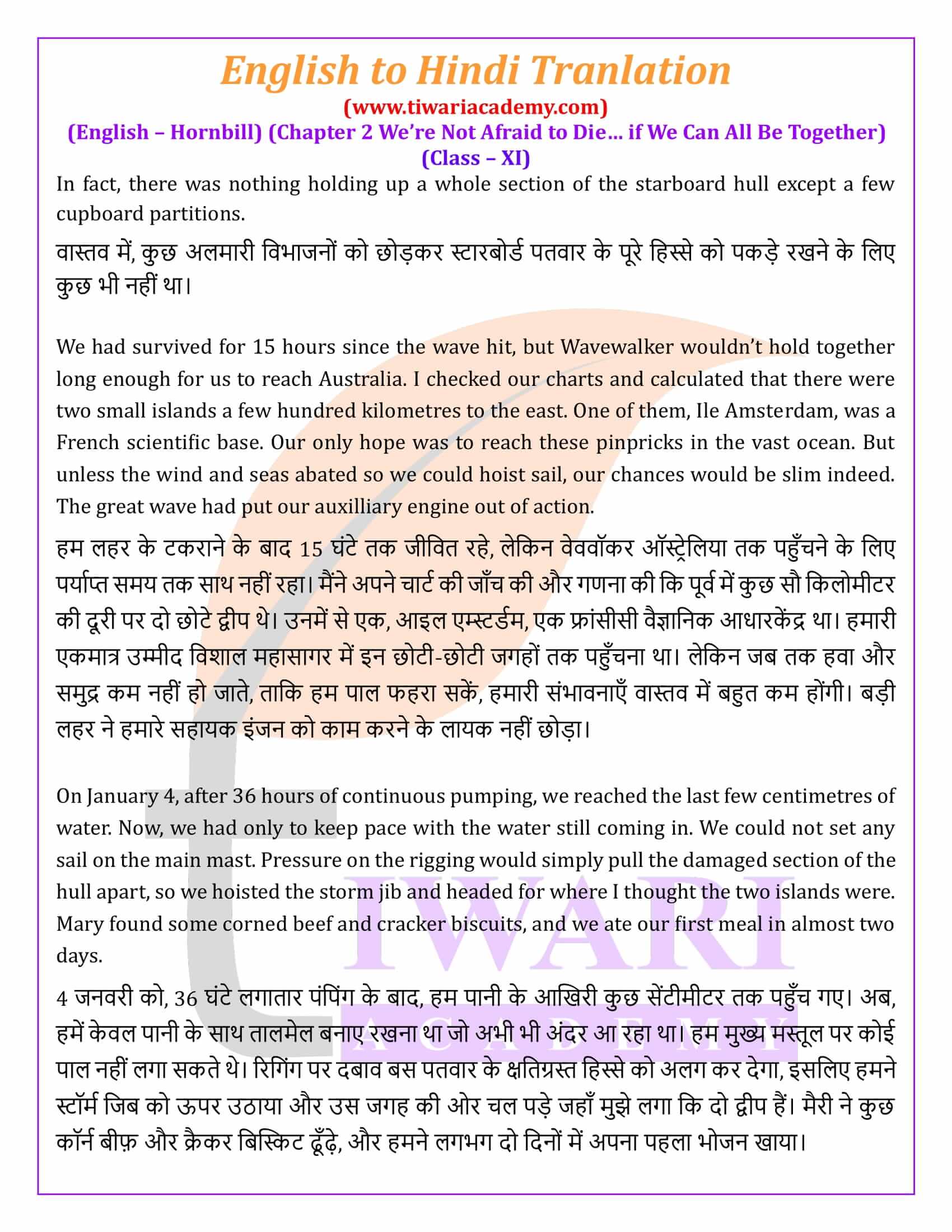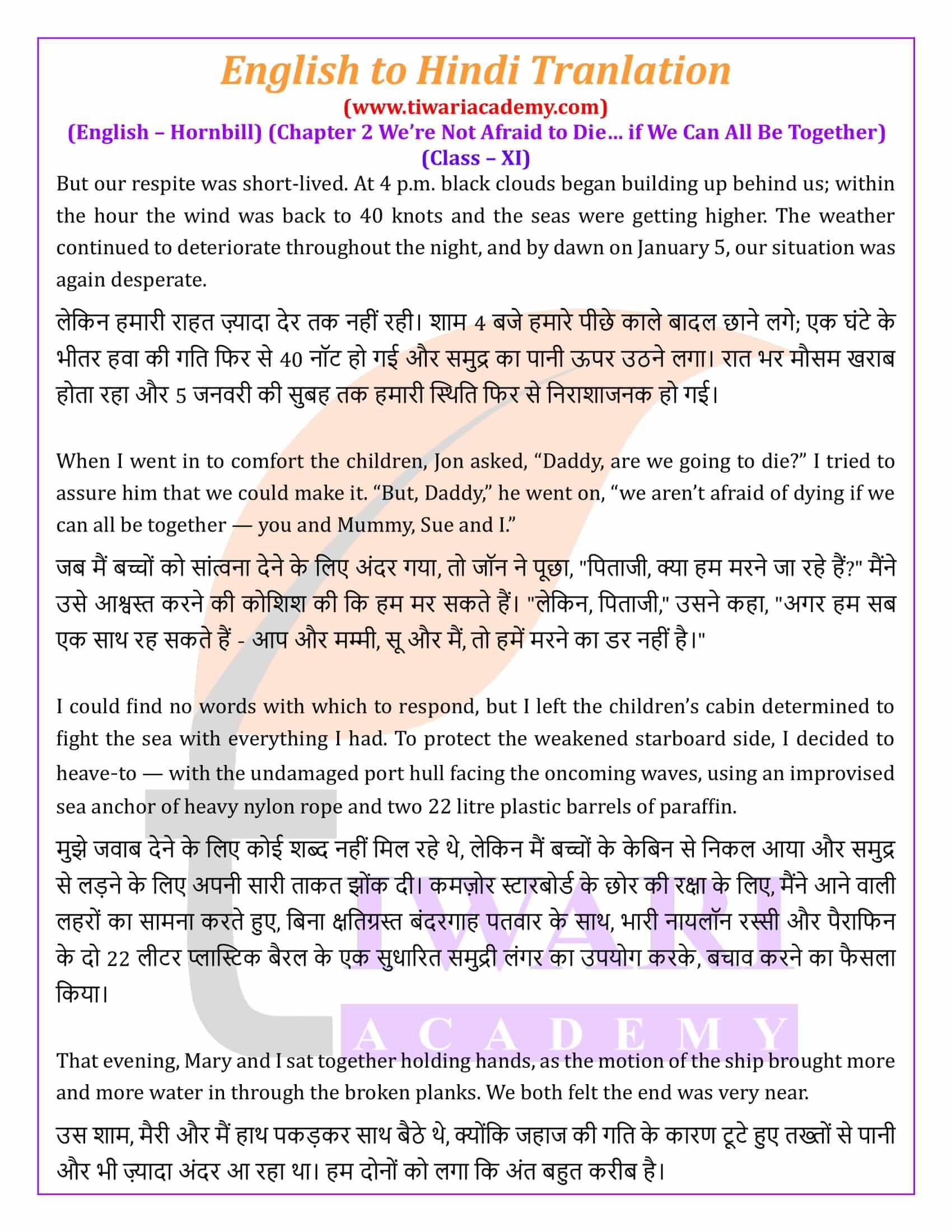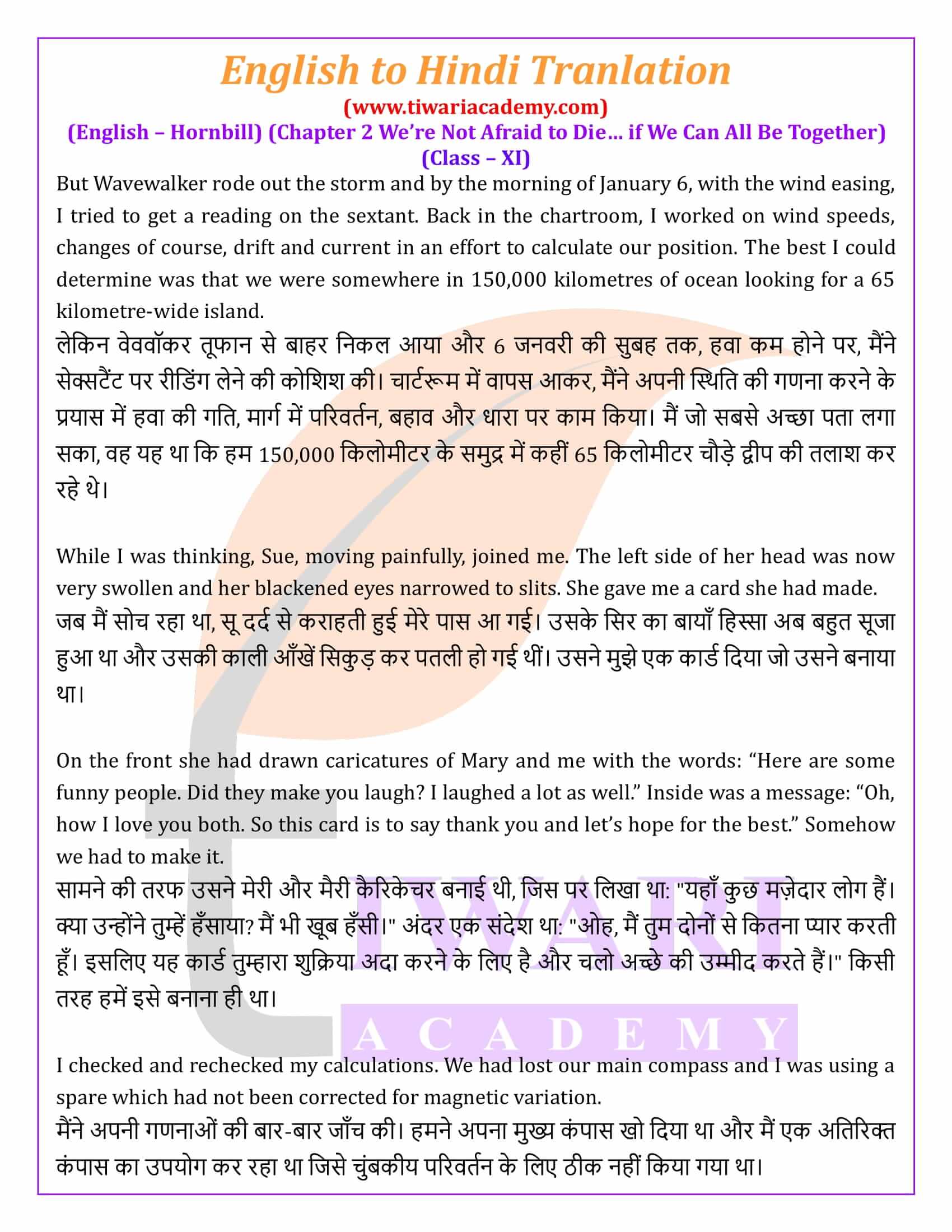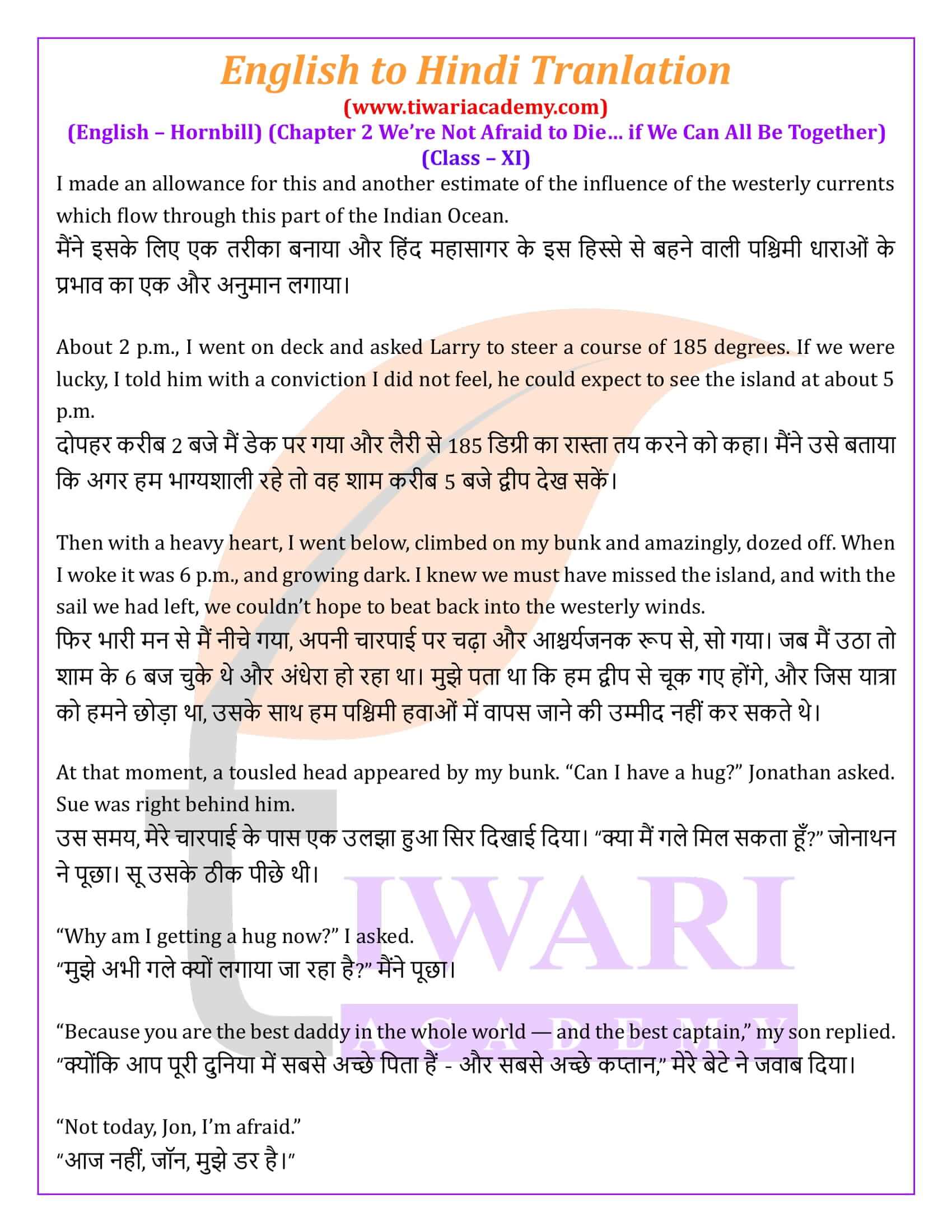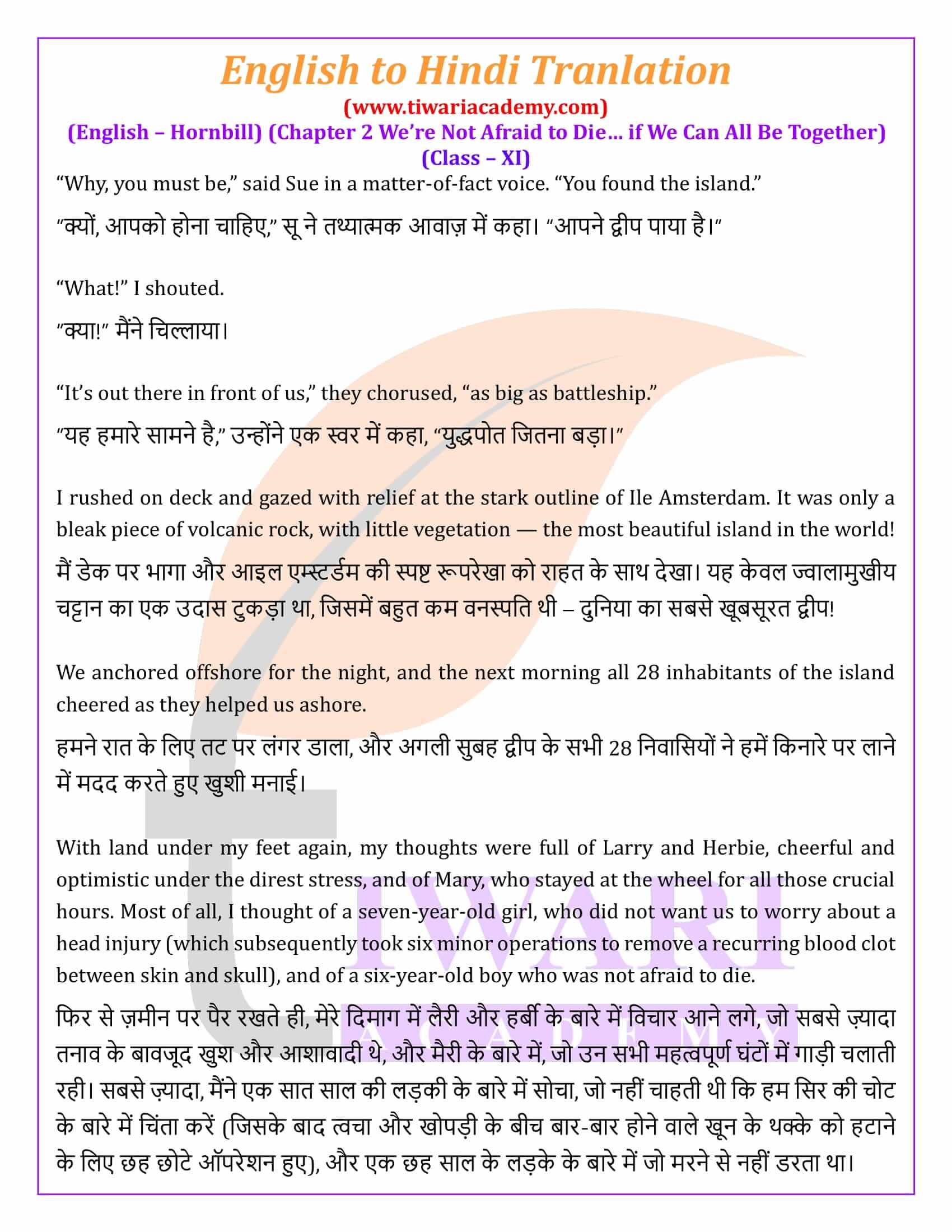NCERT Solutions for Class 11 English Hornbill Chapter 2 Hindi Translation of We’re Not Afraid to Die If We Can All Be Together by Gordon Cook and Alan East for 2025-26. The English to Hindi Translation and questions answers given here are taken from the reading skills of class 11 English section.
Class 11 English Chapter 2 We’re Not Afraid to Die Question Answers
- Class 11 English Hornbill Chapter 2 NCERT Solutions
- Class 11 English Hornbill Chapter 2 Hindi Translation
- Class 11 English Hornbill Chapter 2 MCQ with Answers
- Class 11 English Hornbill Chapter 2 Extra Questions
- Class 11 English Hornbill Chapter 2 NCERT Book
- Class 11 English Hornbill all Chapters Solutions
- Class 11 all Subjects NCERT Solutions
Understanding the Text
Question:
List the steps taken by the captain
(i) To protect the ship when rough weather began.
(ii) To check the flooding of the water in the ship.
Answer:
(i) In order to protect the ship from rough weather, the captain decided to slow it down. He dropped the storm jib and lashed heavy mooring rope in a loop across the stem. He double lashed everything, wore lifesaving jackets.
(ii) He went to the bottom of the ship to see how the sea water is in the ship.
Describe the mental condition of the voyagers on 4 and 5 January.
By the time the 4th Jan came, everyone’s condition had worsened because they were fighting only with strong winds and in getting the water out of ship for the last three days. Everyone has suffered a lot mentally in last three days and there was little water left on ship. They ate corned beef and cracker biscuits which Mary found from somewhere. They had just heaved a sigh of relief that at 4pm in evening there was a black cloud again and strong winds started blowing which continued till next day. He had just heaved a sigh of relief that at 4 o’clock in the evening there was a black cloud again and strong winds started blowing. After talking to the children, the author became stronger than before.
Describe the shifts in the narration of the events as indicated in the three sections of the text. Give a subtitle to each section.
- Boat Wave Walker
The story begins when the author sets out for a long sea voyage with his family. He’s going to repeat the history that James Cook wrote 200 years ago. It was July, 1976 and the ship was 23 metre and weight of it was approximately 30 tons. The author and his wife had 16 years of excellent seafaring experience and built this ship in a very professional way. - Sea Storm
They do not face any problem for a week of travel, but after that they have to face severe sea storms for 4 days in which they also suffer a lot and their ship is also filled with water, after which they see little hope of their survival. They continue their efforts to get the water out of the ship. - Lands on Island
The author manages to take the ship to a nearby island (Ile Amsterdam) with his intelligence and map that saves everyone’s life. Author, his wife Mary, son Jonathan, daughter Suzanne and two crew members American Larry Vigil and Swiss Herb Seigler’s efforts, they reach the right place at right time.
How does the story suggest that optimism helps to endure “the direst stress”?
There is no denying the fact that optimism helps to endure “the direst stress”. There could not have been a bigger problem for the narrator and his family than they faced in January 1977. They had a near death experience despite having a mighty ship. But they faced those sea waves untidily and did not even sleep for 3 days to empty the ship full of water. They believed in their half a decade long experience of seafaring and their crew members. Someone has rightly said “hope is what keeps the world alive”. Even a six year old boy did not lose hope and motivates his father in this story. It was this hope with which they continued their struggle without eating anything and fought like warrior till their last breath.
What lessons do we learn from such hazardous experiences when we are face-to-face with death?
There is no doubt that “Wavewalker” like experiences teach us a lot. The narrator and his family faced a severe storm and saw the ship nearly sink when they had given up hope of living. And after that there was such a morning which gave them the happiness of lifetime when they reached an island and everyone’s life was saved. Such experiences show that life is very predictable. A calm sea doesn’t make us a better sailor. If we manage to get out of such a situation, then we get a lot to learn. We get cautious for the future and try not to do it again. Last but not least, we should also be thankful to God who saves our life.
Why do you think people undertake such adventurous expeditions in spite of the risks involved?
The adrenaline rush, exercise, achievement, and confidence are the main factors that attract people to adventure sports facilities. Adventurous sports are good from physical well-being keeping lot diseases at bay. Every year many people die by jumping in the high tide rivers. People do this just for a moment’s fun but they do not think about the consequences it can have on them or their family. Such sports or adventure activities should be done after full training or in front of mentor/instructor.
Thinking about language
Question 1:
We have come across words like ‘gale’ and ‘storm’ in the account. Here are two more words for ‘storm’: typhoon, cyclone. How many words does your language have for ‘storm’?
Answer 1:
The other words for “Storm” are hurricane, tornado. In Hindi, it is called “toofan” and in Punjabi it is called “jakkhad”.
Question 2:
Here are the terms for different kinds of vessels: yacht, boat, canoe, ship, steamer, schooner. Think of similar terms in your language.
Answer 2:
In hindi, boat can be called as “Naav, Nauka or Kashti”.
Question 3:
‘Catamaran’ is a kind of a boat. Do you know which Indian language this word is derived from? Check the dictionary.
Answer 3:
The word “catamaran” is derived from the Tamil word, kattumaram which means “logs bound together”. Catamaran has two hulls usually connected by a bridge deck. It can be sailed in shallow water and has low hydrodynamic resistance.
